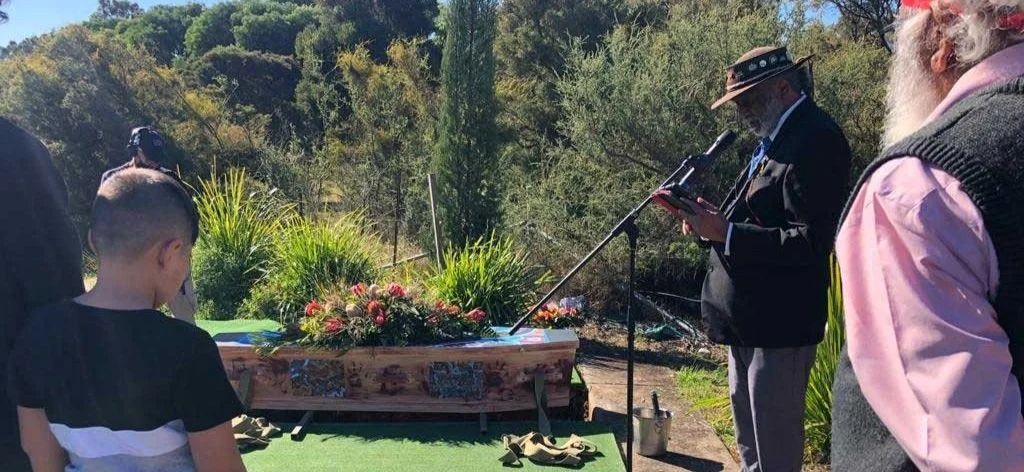Writing and Delivering a Eulogy
There are two common misconceptions about the purpose of a eulogy. Some people think it should be an objective summation of the person's life; and/or the eulogy should speak for everyone who is present at the service. These are unrealistic assumptions. A eulogy is much more simple. Of course, it can include information about the person's life, but primarily it should express the feelings and experiences of the person giving the eulogy vis-à-vis their loved one. The most touching and meaningful eulogies are subjective and written from the heart. A eulogy does not have to be perfect. Whatever you write and deliver will be appreciated by the people in attendance. When you set out to write a eulogy, realise the burden does not have to be yours alone. Ask friends and relatives for their recollections and stories. Be honest. For most people, there are a lot of positive qualities to talk about. Once in a while, however, a eulogy has to be given for someone with mostly negative traits. If that is the case, omission is the solution. A eulogy is not a confession. No one will find fault if you leave out negative details. Talk about positive qualities and, if you must mention the negative, try to put a compassionate spin on it. For example, "She struggled with her demons and they sometimes got the best of her."
A eulogy may be the most challenging words you ever deliver, but it may also be the most rewarding. If you can, make the eulogy easy to read. On a computer, print out the eulogy in a large font. If you are writing by hand, print the final version in large letters and give the words room to breath by writing on every second or third line. Before the ceremony, consider getting a cup of water. Keep it with you during the service. When you go to the podium, take the water in case you need it. Sipping water before you start-and during the speech, if needed-will help you relax.
Before delivering the eulogy, breathe deeply and remind yourself that you are surrounded by loving friends and family. They are with you 100 percent. Take your time. Do the best you can. Just be yourself.
What do you want to say?
The first thing you'll need to do is decide what you want to say. Collect all the basic facts about the deceased: their age, names of children or survivors, marriages, places they've called home or loved to visit, and their career or educational information. Now think about the person you’re remembering. What kinds of stories about them or quotes capture your loved one's personality? Did they have a favourite poem or author? What was important to them? Did they have a favourite charity or cause? Talk with their survivors for inspiration and ideas.
Decide on a tone or theme
Whether you decide to give a solemn speech, a light account of their life with comical musing, or somewhere in between, a theme gives purpose to the eulogy. It helps the attendees see what the deceased’s life stood for. For example, if you’re writing a eulogy for your Grandfather, your theme could be his confidence or his great story telling ability. With your theme in place, you can collect stories that he told to other survivors and yourself. If your theme was his important work or career you might speak with coworkers to get stories and remembrances of his work life or contributions made to his field or place of business. Knowing how you'd like to deliver the eulogy gives you a base to work from when you decide which stories to use.
Organise your notes into segments
If you are doing your work on a computer, type all of your notes in a document with a return between the different topics. This will make it easier to move your ideas around on the document and you can fine tune the order until you have it perfect. If you'd rather write it by hand try the old essay trick from school and write your notes onto index cards or sheets of paper. This way you can shuffle around and work with the statements until you get them how you want them. Once you have organised your notes into an order than flows well, jot the information into a rough outline.
Write your first draft
Using the outline you’ve developed, write out a draft of your speech. Fill in any gaps in information and make sure each idea flows into the next. Try not to let the speech get too stiff, you don’t want a long fact sheet on your loved one’s life. Try to incorporate real life experiences or anecdotes between the facts. Use bits of humour if you think it is appropriate. This is also a good time to decide where natural pauses will fit into your speech so you can note that on your final draft.
Make your final draft
Go over your first draft and finalise what you are going to say. This is a great time to get input from other survivors or friends that will give you advise. Read the speech out loud at least once at this stage to be sure it sounds right to you. Once it is finalised, rewrite it neatly or type the speech so it will be easier to read at the funeral. You may also copy your speech to notecards if will make a more comfortable delivery for you. In other words, even if you plan to memorise the speech have a copy at the funeral. Funerals often are emotional and you may forget parts that aren't written down.
Practice delivery of the eulogy
Read your speech to yourself aloud or even out loud to a third party. This will help you point out any areas that don’t sound right or are not appropriate. When you practice your speech in front of another person you can gain their input. You may want to deliver your speech in front of a mirror to get used to saying the words. Even delivering the speech to a trusted family pet, while imagining an audience, can help you work the kinks out. Easy delivery of the eulogy often relies on the ability to recall your eulogy.
Relax
While giving the speech, remember to relax and breathe normally. Remember that no one will be judging you; your audience are there to honour your loved one. Pay attention to the speed that you are speaking. We tend to speed up when we’re nervous so take it at a normal speaking pace. It’s good to add pauses to collect your thoughts or provide time for your listeners to digest your information. Above all else, remember to breathe.



